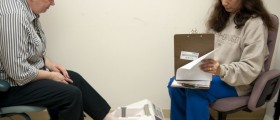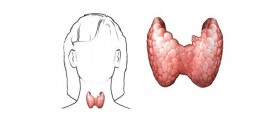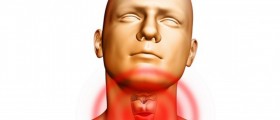questions and answers to treating and diagnosing hypothyroidism
Loading...
Hi, guest.
I'll try to cover all the details.
Hypothyroidism is a condition where the thyroid gland does not produce enough thyroid hormone. It can be due to various reasons and can present with a wide range of symptoms.
Diagnosis of Hypothyroidism:
-
Clinical Examination: A healthcare provider will typically start with a detailed medical history and physical examination.
-
Laboratory Tests:
- TSH (Thyroid Stimulating Hormone) Test: This is the most sensitive test for diagnosing hypothyroidism. Elevated TSH levels suggest primary hypothyroidism.
- Free T4 (Thyroxine) Test: Decreased levels of T4 typically go hand in hand with elevated TSH in primary hypothyroidism.
- Thyroid Antibody Tests: Useful in diagnosing autoimmune forms of thyroid disease (e.g., Hashimoto's thyroiditis).
- Other tests might include Total T3, Free T3, and reverse T3, depending on the clinical scenario and physician's approach.
-
Imaging: In some cases, ultrasound of the thyroid may be performed to check for any structural abnormalities.
Symptoms can vary from person to person and can range from mild to severe. Common symptoms include:
- Fatigue
- Weight gain
- Cold intolerance
- Constipation
- Dry skin
- Thinning hair
- Muscle weakness
- Elevated blood cholesterol levels
- Muscle aches and stiffness
- Heavier or irregular menstrual periods
- Depression
- Impaired memory
- Slow heart rate
- Puffy face
- Hoarseness
- Joint pain or stiffness
- Enlarged thyroid gland (goiter)
Treatment Options:
-
Thyroid Hormone Replacement Therapy: The most common form of treatment is levothyroxine, a synthetic form of the thyroid hormone thyroxine (T4). Patients typically take this medication once daily, and regular monitoring of thyroid function tests is essential to ensure the dosage is correct.
-
Dietary and Lifestyle Changes: Some individuals might benefit from certain dietary changes, such as avoiding foods that interfere with thyroid function (e.g., excessive soy or certain vegetables like broccoli in raw form). Maintaining a balanced diet and exercising regularly can also help manage symptoms.
-
Regular Monitoring: Once on thyroid hormone replacement, it's crucial to have regular check-ups and thyroid function tests to ensure the right dose and monitor for any complications.
-
Treatment of Underlying Causes: In some cases, treating the underlying cause, such as an iodine deficiency or discontinuing a medication that affects thyroid function, may help address hypothyroidism.
If you have any more questions, feel free to ask us.
Loading...
















